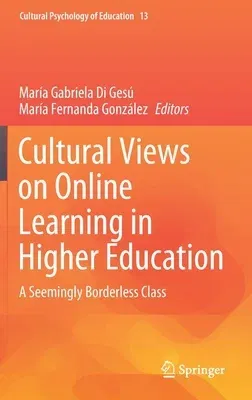Cultural Views on Online Learning in Higher Education: A Seemingly Borderless Class (2020)Hardcover - 2020, 2 March 2021

Qty
1
Turbo
Ships in 2 - 3 days
In Stock
Free Delivery
Cash on Delivery
15 Days
Free Returns
Secure Checkout

Part of Series
Cultural Psychology of Education
Print Length
212 pages
Language
English
Publisher
Springer
Date Published
2 Mar 2021
ISBN-10
3030631567
ISBN-13
9783030631567
Description
Product Details
Book Edition:
2020
Book Format:
Hardcover
Country of Origin:
NL
Date Published:
2 March 2021
Dimensions:
23.39 x
15.6 x
1.42 cm
ISBN-10:
3030631567
ISBN-13:
9783030631567
Language:
English
Location:
Cham
Pages:
212
Publisher:
Weight:
512.56 gm